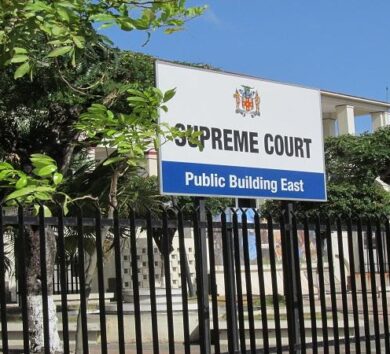

The Government is working to finally ratify the Specially Protected Areas and Wildlife (SPAW) Protocol of the Cartagena Convention in the first quarter of the new fiscal year, which begins on April 1.
This was revealed during a virtual press conference of the National Environment and Planning Agency (NEPA), on Thursday, March 30.
The entity’s Chief Executive Officer (CEO), Peter Knight, said that the Government is currently pursuing amendments to the Wildlife Protection Act and the promulgation of the Protected Areas Regulations.

“We anticipate that the process will be completed the first quarter of the 2023/24 financial year. When done, it will enable Jamaica to meet the obligations of the SPAW Protocol and, therefore, allow the Government of Jamaica to ratify the Protocol,” he added.
Jamaica signed the SPAW protocol in 1990. It is a regional agreement for the protection and sustainable use of coastal and marine biodiversity in the wider Caribbean region.
The country has been unable to accede to the protocol and be fully compliant with its intent, because of the failure to amend the Wildlife Protection Act.
We are happy that the Prime Minister accepted and agreed with the representation made to him by the Agency when he was sensitised to major challenges being faced and that there was need for a policy response, intervention and urgent management of these areas.
Peter Knight, chief executive officer at NEPA
Minister without Portfolio in the Ministry of Economic Growth and Job Creation, Senator Matthew Samuda, in his contribution to the State of the Nation Debate in the Upper House in December last year, said that “this Administration will address this legacy issue”.
In the meantime, Knight welcomed the announcement by Prime Minister, Andrew Holness, in his recent contribution to the 2023/24 Budget Debate, that 15 ecologically sensitive areas (ESAs) islandwide have been identified for enhanced protection.
“We are happy that the Prime Minister accepted and agreed with the representation made to him by the Agency when he was sensitised to major challenges being faced and that there was need for a policy response, intervention and urgent management of these areas. We are also pleased that the Cabinet agreed with the Prime Minister’s position that the matter required support as outlined in the recent Cabinet decision,” Knight said.

He informed that to effectively manage these areas, “we will implement controls to reflect the management objectives and site-specific needs”.
“Given the range of applicable legal instruments, an integrated and coordinated approach will be utilised to ensure that the proposed legal protection measures are efficiently and effectively applied and enforced,” Knight emphasised.
He pointed out that the proposed day-to-day management arrangements for identified ESAs will involve an enterprise team, which will eventually transfer this responsibility to identified competent community-based groups or environmental non-governmental organisations.
Knight added that the Government has already signalled its support and issued instructions for annual subventions to be provided to the relevant regulatory agencies.
Additional resources will be mobilised utilising economic instruments, for example, through user fees (as currently obtains in the country’s marine and national parks), payment for ecosystem services and through private-sector adoption programmes.
See related story at the link below:
€7m to strengthen biodiversity conservation in 11 Caribbean nations
As influx plagues Jamaica’s coasts, NEPA urges care in removal of Sargassum seaweed
‘Only one Earth’: NEPA urges Jamaicans to help safeguard planet
Send feedback to [email protected]







Comments